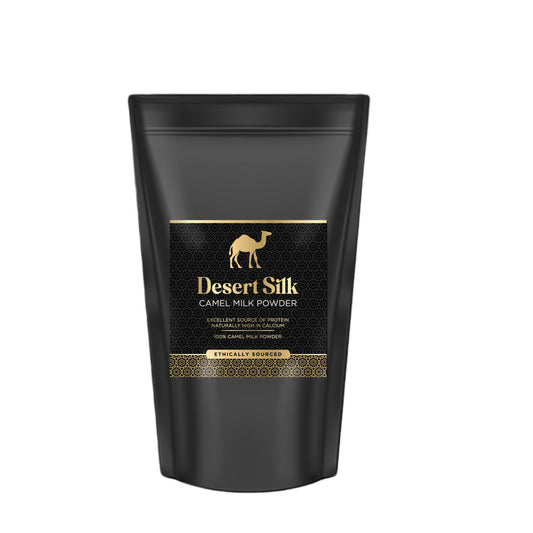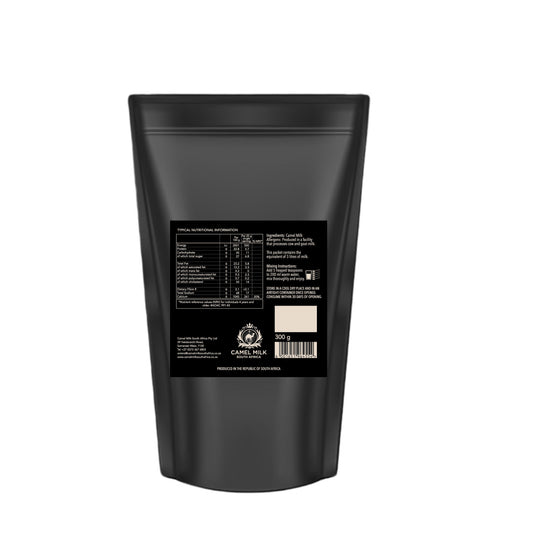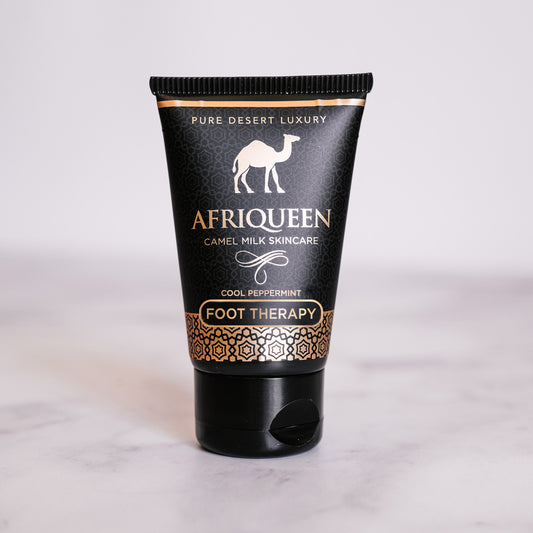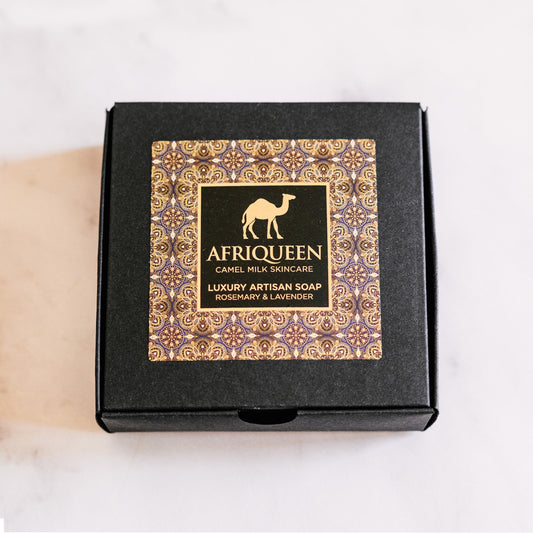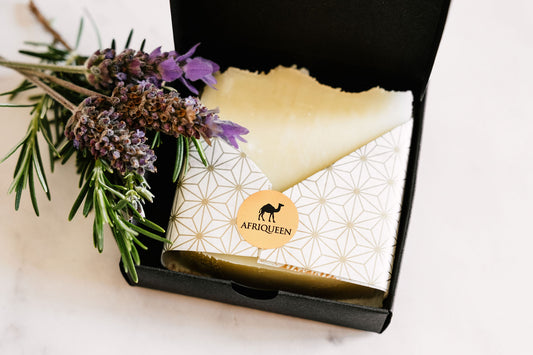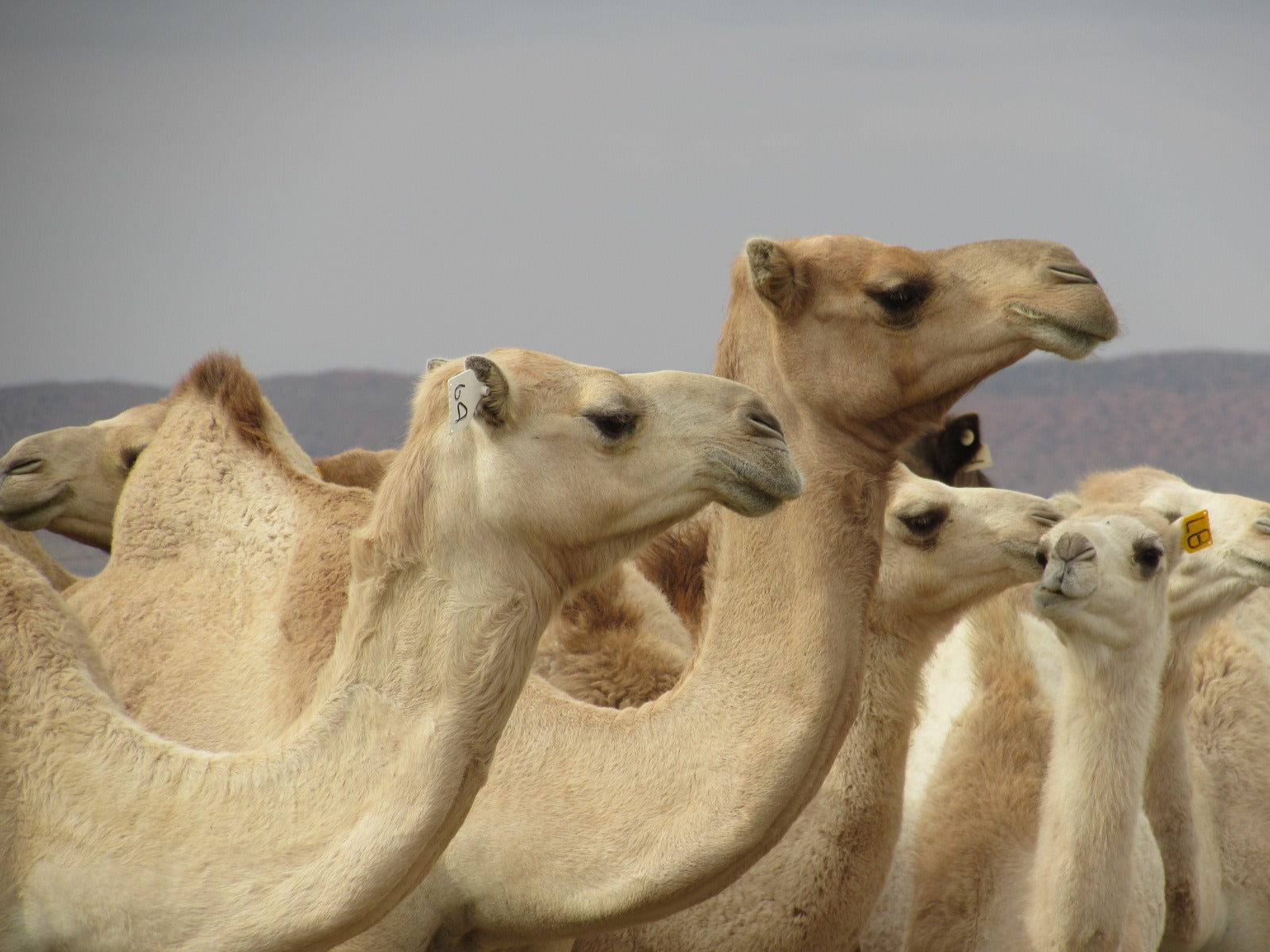
A Kalahari Camel Tale: From Border Patrol to Farming with the Desert’s secret gift
Ethically sourced camel milk from a family-run farm in the heart of the Kalahari.
Our Story
What started as a few retired camels from a police unit has become one of South Africa’s most ethical and inspiring camel dairies. Our journey is filled with droughts, determination and deep respect for the animals that changed our lives.
From border patrol to breakthrough nutrition - the full story of how our family turned a remote Kalahari farm into a legacy of sustainability, health and care is one you don’t want to miss.
Over a century ago, camels arrived in South Africa, not as exotic livestock or dairy animals, but as desert workhorses. Imported by the government around 1900 from Sudan, they were used by mounted police to patrol the arid borders of the Kalahari, where horses simply couldn’t cope. When the police retired their camel units in the 1950s, a few of the camels made their way to the Koppieskraal Kameelplaas. These animals would later become the foundation of a unique dairy journey.
For years, the family sold camels for safari rides, pets and tourism. But a crippling drought between 2013 and 2015 forced them to rethink the future. Could the camels provide more than just companionship and rides? They began to explore camel milk and were surprised to discover how nutritious and valuable it was.
Milking camels wasn’t like milking cows. It was awkward, challenging, and required the camels to trust the milkers. Unlike cows, camels do not release their milk unless they’re relaxed and at peace.
Very soon, they learned a valuable lesson: the calves had to be present and nursing to trigger milk let-down.
With milk in hand, they faced a new challenge - where to sell it. Somali communities in Cape Town and Johannesburg became their first customers, familiar with and fond of camel milk. Though sales were initially unprofitable due to high transport costs, they used this phase to build logistics and trust. Eventually, they transitioned to selling milk powder - extending the shelf life and reducing transport challenges.
The farm operates with strong ethical principles. Calves are never culled. They play crucial roles in milk production, hygiene, and long-term herd health. Camels live naturally, mate naturally, and give birth in the veld. Every animal is treated with respect, and nothing is hidden from view.
Camels roam the diverse vegetation of the Kalahari farm, browsing across grasslands, shrubs, and saltbush. Their milk reflects this diet full of nutrients. Every drop of milk comes from camels fed by nature, not human-designed rations.
Camel milk, they discovered, offers powerful health benefits. It’s free from the problematic proteins in cow milk that often trigger allergies. It's also packed with natural immunoglobulins, lactoferrin, and alpha hydroxy acids - all essential for immune support and digestion. And unlike synthetic supplements, these nutrients are highly bioavailable.
Today, the family milks their herd twice daily. Calves stay with their mothers during early life and gradually wean off over time. When a camel cow is ready, she rejoins her breeding bull to begin a new cycle. With a long-term vision, ethical practices, and deep respect for their animals, the farm now produces milk not just for survival, but for health, sustainability and legacy.
Camel Milk: A Global Movement
-
Middle Eastern Origins
Camel milk has been a staple in the Middle East for centuries.Some commercial dairies in the Middle East milk more than 1000 camels daily.
-
The World
Camel dairy are opening from China and Australia to Europe and the USA. Camel milk is used in baby formula, ice cream, chocolate and cheese. Demand has grown rapidly across the world as more people discover the unique benefits of camel milk.
-
South Africa
We’re proud to be South Africa’s answer to this global movement — offering pure, locally produced Kalahari camel milk for everyday wellness.
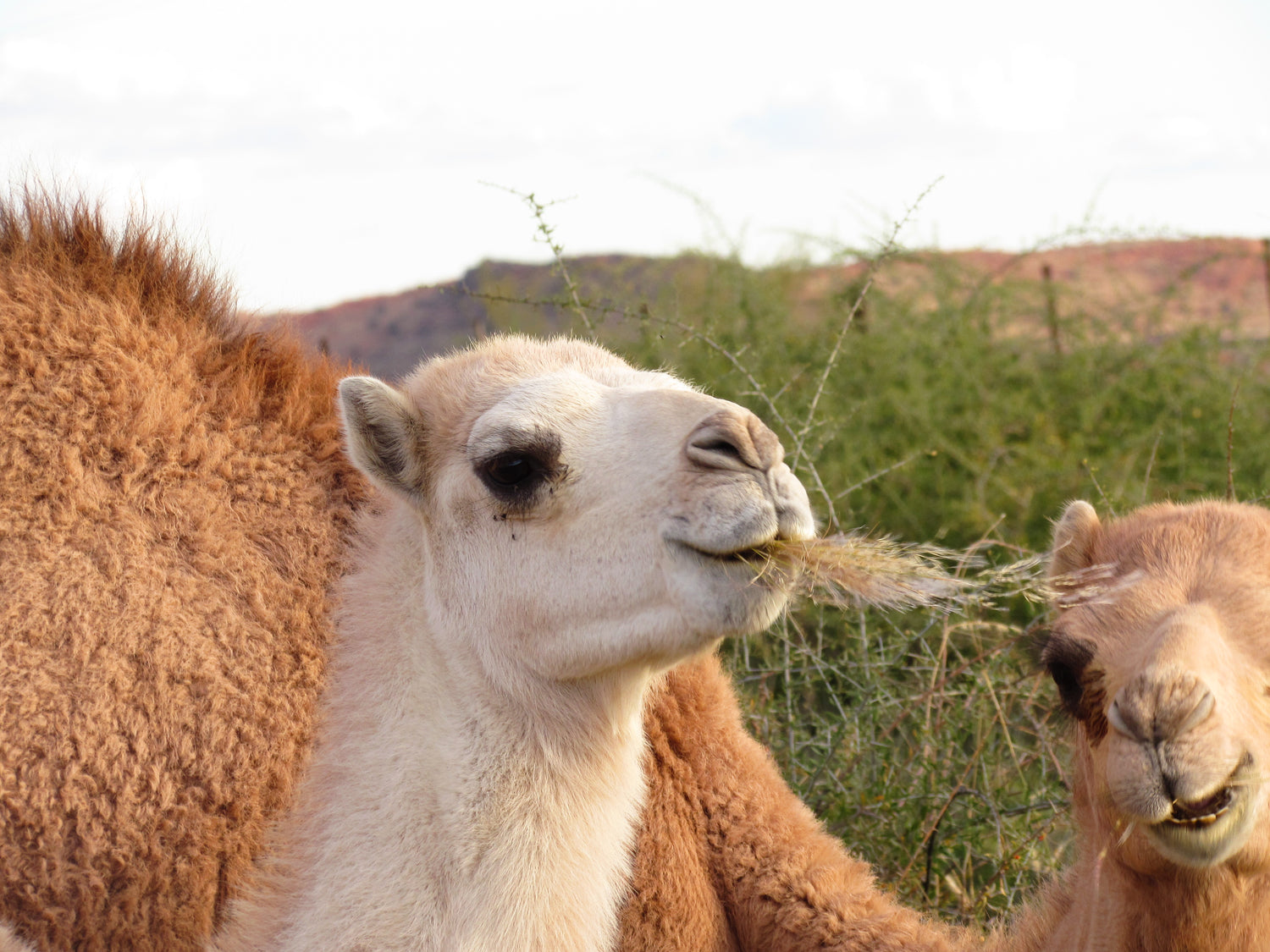
From Farm to You
We offer premium powdered camel milk, made from milk that’s pasteurised and gently spray-dried. The result? A creamy, nutrient-dense powder that’s easy to use, easy to store, and perfect for travel — available in 300 g and 1 kg pouches.
Camel milk is more than just a dairy alternative; it’s a time-honoured superfood with a rich history of nourishing communities. Now, South Africans can enjoy its benefits, delivered straight from our Kalahari farm.
When Skincare Meets the Desert
Camel milk has long been celebrated for its nutritional benefits, but its skincare benefits are equally remarkable. In 2020, our family began crafting handmade soaps, inspired by camel milk’s natural ability to soothe, nourish, and restore the skin. What started as a small-batch passion has grown into Afriqueen, a camel milk skincare range now produced in Cape Town.
Afriqueen offers gentle, restorative care for all skin types, bringing the purity of the desert into your skincare routine.
What We Stand For
-
🐪 Ethical Animal Care
Our camels are raised with compassion - no culling of calves, ever.
-
🌿 Pure & Natural
No antibiotics, no stimulants, no additives — just clean, wholesome goodness.
-
🌍 Sustainable Produced
Locally made with mindful sourcing and deep respect for the land.
-
👨👩👧👦 Family-Owned & Passion-Driven
Built on generations of tradition, driven by a passion for purity and quality.
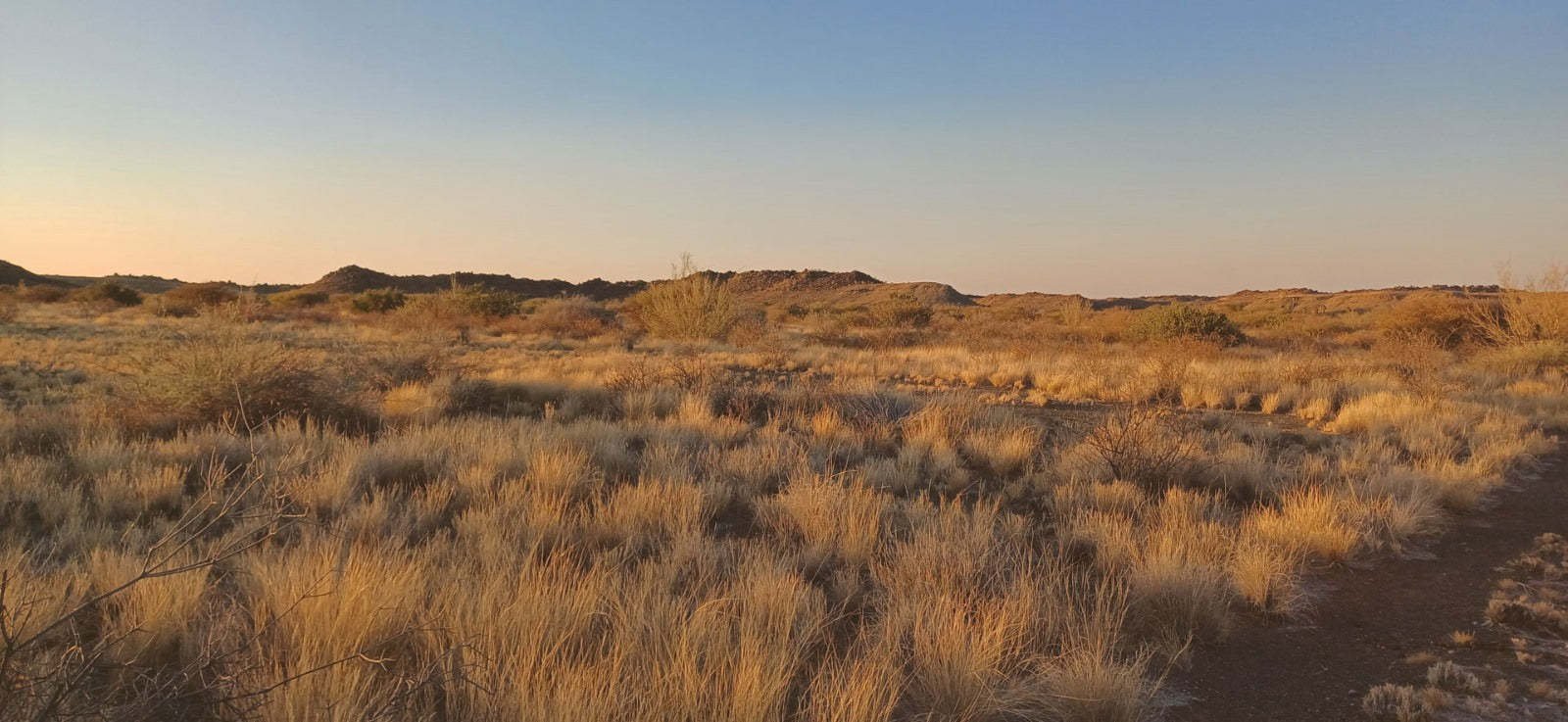
Want to Learn More About Camel Milk?
From nutritional benefits to natural skincare, camel milk is one of nature’s most powerful resources. Explore how we bring it to life — ethically, locally, and sustainably.
Understanding Camel Milk
Is camel milk safe for people with dairy allergies?
Yes. Camel milk is naturally free from A1 beta-casein and beta-lactoglobulin — the common allergens in cow milk.
Does camel milk taste different from cow milk?
Camel milk has a slightly saltier and lighter taste, often described as clean and mildly sweet. This is mainly due to the difference in vegetation.
Is camel milk suitable for children?
Yes, it’s often well tolerated and support immune and digestive health in children.
Is your camel milk pasteurised?
Yes, all our camel milk products are pasteurised and processed according to health standards.
Can I use camel milk if I'm diabetic?
Yes and there are research studies that suggest camel milk may help with blood sugar management. Please consult your healthcare provider first.
Got a Question or Story to Share?
-
50% Cocoa Camel Milk Chocolate – Desert Silk - Made in South Africa
Regular price R 118.00 ZARRegular priceUnit price / per -
Desert Silk Camel Milk Powder 300g – Smooth, Digestion Friendly
Regular price R 380.00 ZARRegular priceUnit price / per -
Afriqueen Foot Therapy 50 ml
Regular price R 80.00 ZARRegular priceUnit price / per -
Afriqueen Artisan Soap 100g
Regular price R 100.00 ZARRegular priceUnit price / per


